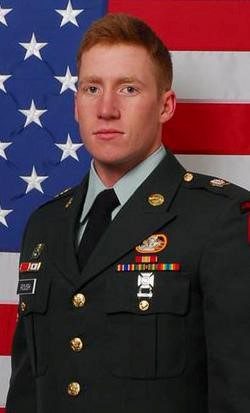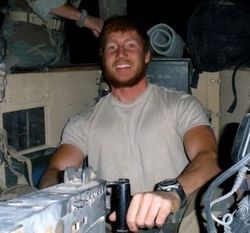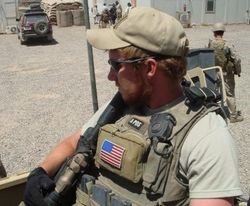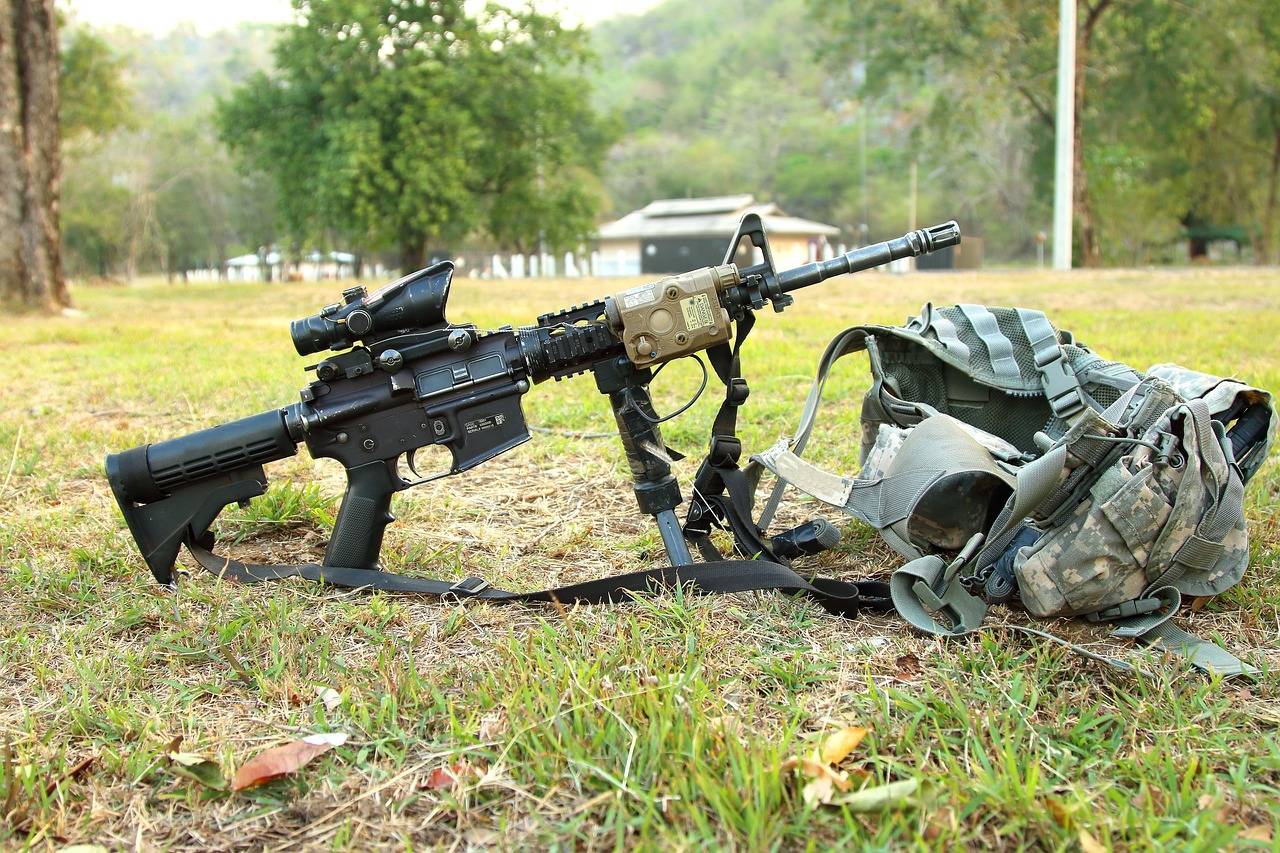
Nicholas Ryan Roush
Corporal, United States Army
January 19, 1987 – August 16, 2009
Age – 22
Middleville, MI
Operation Enduring Freedom
1st Psychological Operations Battalion, 4th Psychological Operations Group (Airborne), Fort Bragg, NC
Died in Herat, Afghanistan of wounds suffered when an improvised explosive device detonated near his vehicle
Bob Roush said his son “wanted to serve” and “do something significant,” and believes he “has done that and more.” He says the family is “counting on seeing Nick in heaven.”
At an event in Corporal Roush’s honor, the following tribute described him perfectly.
Sgt. 1st Class Jason Montesanto, of Reno, Nev., talked of Roush as a “first-round draft pick” for soldiers, with his motivation and intelligence. Both were part of the Army’s First Psychological Battalion, Fourth Psychological Operations Group from Fort Bragg, N.C., and attached to a U.S. Marine Corps unit. “He was the guy I depended on the most when things had to get done,” Montesanto said of Roush. “When we came under hostile fire, Nick was a lion. There is nothing more reassuring under fire knowing a guy like Nick has got your back. Roush was a soldier willing to give it all, and “selflessly threw himself in harms way” for the mission, he said.
As a boy, for instance, there was the time his mother found a frog in his swim shorts, The 1995 Eagle Talon he and his father, Robert, fixed into a prize-winning show vehicle, dubbed “Monica,” surfaced more than once during the service. The 2005 Thornapple-Kellogg High School graduate had talked about teaching or opening a custom car shop, said Bobby Roush. But that wavering changed when he joined the Army. “From the time Nick signed, he was focused like I’d never seen,” Bobby Roush said.
During the service, pastors read snippets of letters Roush wrote to his parents, describing how he missed them and home life, playing Xbox with his brother and how he shared his Christian faith with others.
Curt Batdorff, a friend and high school classmate, said Roush understood his military career choice was a life-altering. “He was never confused as to what his battle was,” Batdorff said. “It was to use his ability to fight for those that could not fight for themselves. He saw oppression and he didn’t sit idly by.”
Cpl. Nicholas Ryan Roush did nothing halfway. As a young man preparing for the Army, Roush filled his old high school book bag with barbell weights and hiked long trails near his family’s home in Middleville, Michigan.
As a soldier at Fort Bragg, Roush often wore ankle weights during long runs with his unit. He would tell others that he needed the weights to get a full workout in. “Others would find that cocky,” said Master Sgt. Jason Montesanto, who counted Roush among his soldiers and as a friend. “If you knew Nick, you knew that’s not who he was. If he did something, it was never to show off. It was simply to get better at it.”
Roush was killed by a bomb while on a mission in Herat province, where his psychological operations team was embedded within a team of Marine Corps special operations troops. He was in Afghanistan to help prepare the nation and its population for national elections that year. They patrolled with the Marines and also created public service announcements to help inform the Afghan people.
Roush was killed days ahead of the election during operations targeting members of a shadow government that sought to destabilize the region ahead of the vote. Montesanto was on the mission. He said that while the troops anticipated combat on previous missions in Afghanistan, this operation was different. “We were going to initiate it,” Montesanto said.
He said the mission was a success, but while heading back to base, the troops were the victims of a complex ambush. Montesanto said he heard a series of explosions among the troops’ convoy. He later learned that Roush’s vehicle was one of those targeted by the blasts. Roush and an interpreter were killed instantly, and four Marines were severely wounded.
Montesanto personally escorted Roush’s remains back to his family. Robert Roush said he considers Montesanto a son. As Montesanto prepared to honor Roush, the soldier stood at a podium but couldn’t find words.
He strained to hold back his emotions as he looked out at the crowd of more than 130 soldiers. Failing, Robert Roush stood from his seat and approached the podium. The two men embraced briefly before Montesanto collected himself and began his speech.
He spoke of the first time he saw Roush – who he described as a red-headed Viking warrior – during the psychological operations qualification course. During that training, Montesanto said, he met Roush in a parking lot, where the latter’s car had been struck by another motorist.
Roush was upset, but not mad, Montesanto said. Instead, he was already thinking about how to fix his car, a “beat up Honda Del Sol,” and make the vehicle better in the process.
“That’s what he did,” Montesanto said. “Instead of getting angry about something really unfair that had happened to him, he moved forward.”
After the qualification course, Montesanto became a team leader with C Company, 1st Military Information Support Battalion as the unit prepared for a deployment. He said he asked for Roush by name to serve on his three-man team. “Nick was my first-round draft pick,” Montesanto said.
Roush was tough, he said. But the soldier was more than just grit and physical prowess. He had a great personality, was well-mannered and respectful, and was fun to be around. “He was the standout soldier in the company,” Montesanto said. “He was one of the very few guys that literally everyone liked.”


